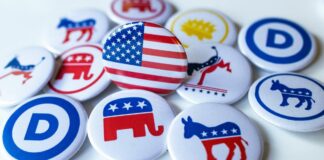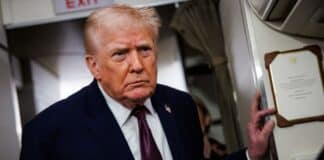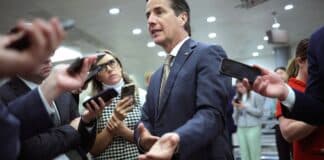The U.S. Chamber of Commerce filed a lawsuit challenging President Trump’s fee on H-1B visas for foreign workers.
“The new $100,000 visa fee will make it cost-prohibitive for U.S. employers, especially start-ups and small and midsize businesses, to utilize the H-1B program, which was created by Congress expressly to ensure that American businesses of all sizes can access the global talent they need to grow their operations here in the U.S.,” Executive Vice President and Chief Policy Officer at the U.S. Chamber Neil Bradley said.
He added that while President Trump “deserves credit for securing our nation’s border,” the country has a “once-in-a-generation opportunity to accomplish targeted legal immigration reforms, and we stand ready to work with Congress and the administration to make that happen. That includes working together on common-sense reforms to improve the visa process for skilled workers. The president has said he wants to educate, attract, and retain the world’s best and brightest in the U.S., and the Chamber shares that goal.”
According to the lawsuit, Trump’s fee would “inflict significant harm on American businesses, which would be forced to either dramatically increase their labor costs or hire fewer highly skilled employees for whom domestic replacements are not readily available.”
“Indeed, a fee of $100,000 would significantly reduce participation in the program, resulting in fewer employers being able to access the highly skilled workers they need to continue to innovate and create American jobs,” the filing adds.
President Trump’s proclamation on H-1B non-immigrant visa program policies says the “large-scale replacement of American workers through systemic abuse of the program has undermined both our economic and national security.” It notes that some employers, “using practices now widely adopted by entire sectors, have abused the H-1B statute and its regulations to artificially suppress wages, resulting in a disadvantageous labor market for American citizens, while at the same time making it more difficult to attract and retain the highest skilled subset of temporary workers, with the largest impact seen in critical science, technology, engineering, and math (STEM) fields.”





